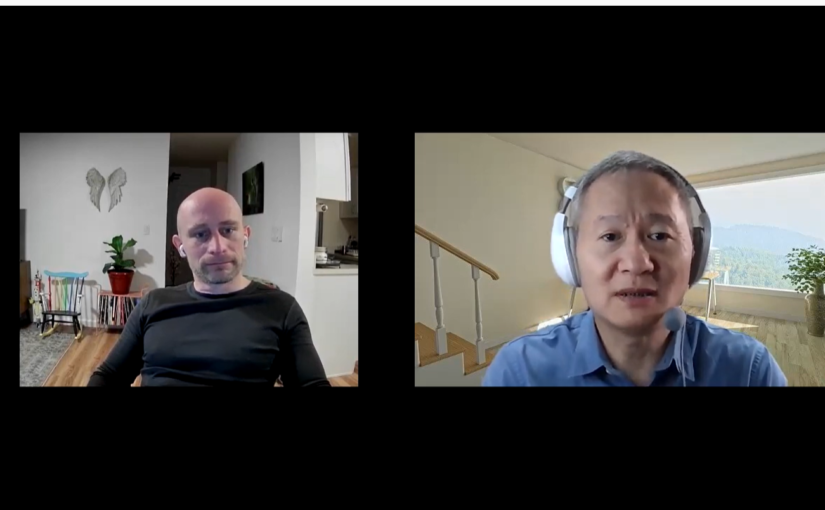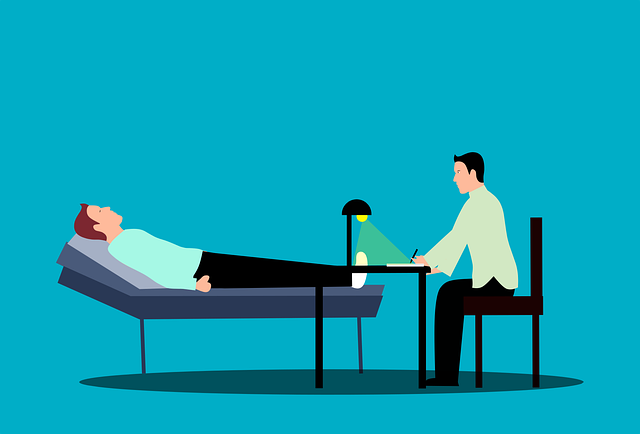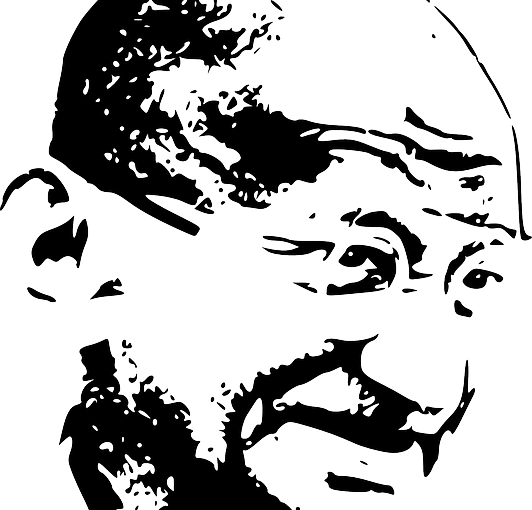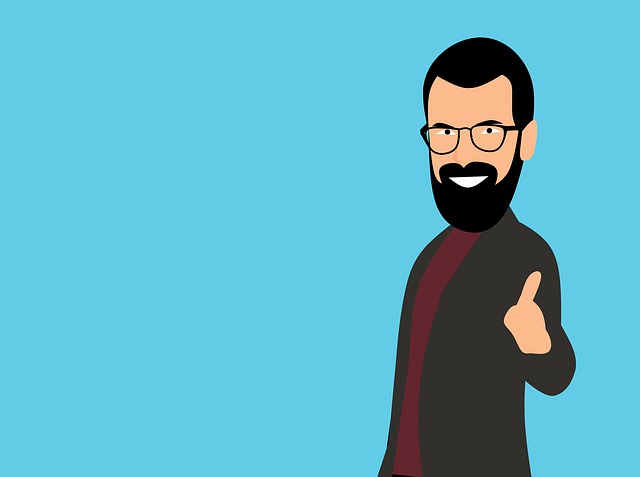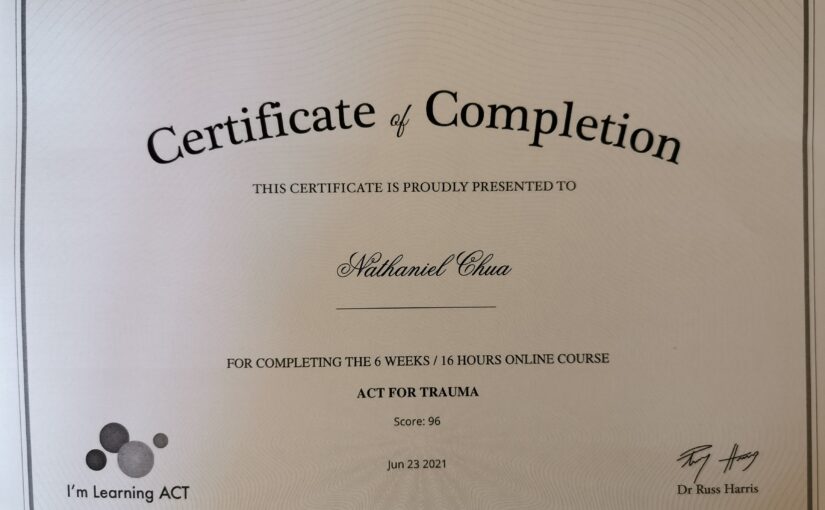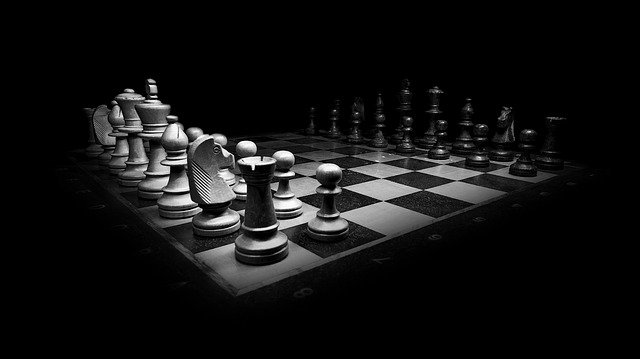Tag: Counseling for Anxiety
Interview Conducted with Dr. Matthieu Villatte!
Perhaps we are making Philippine history here!
Here’s a video of my interview with Matthieu Villatte, PhD who is an Assistant Professor at Bastyr University in Seattle, WA in the United States.
He obtained his doctoral degree in psychology in France, where he was trained as a clinical psychologist. He moved to the US in 2010 to complete a post-doctoral fellowship at the University of Nevada, Reno under the mentorship of Steven Hayes, PhD.
Matthieu Villatte is the author of numerous books and chapters on mindfulness, acceptance, experiential therapies, and contextual behavioral science, such as the first manual published in French on Acceptance and Commitment Therapy and Mastering the Clinical Conversation: Language as Intervention, co-authored by Jennifer Villatte and Steven Hayes.
In the video, we talked about how the principles of behavioral therapy apply to everyday lives of people, the OFW or migrant worker phenomenon prevailing in the Philippines, as well as the pandemic!
Facing the New Year with Awareness, Courage, and Love
by Nathan Chua
The title of this post is not an original, at least the part that counts most. Many times in my graduate studies, I had wondered what, bottomline, counseling was about. I mean, what is it basically that we are trying to accomplish? At some point in my graduate studies, I thought it was forgiveness. It turns out that I will find an answer to this in my readings of Kevin Polk and his co-authors. It’s about helping clients to become more aware, to act courageously, and to do so lovingly.
Let’s take them one at a time.
Awareness:
Much of what we regret doing stems from acting in ways that are automatic. How often have we seen people commit homicides in this country, only to see them realize that they had lost control over their actions for a split second? There was even a case of a police officer who had a sterling record of service, who now has an indelible audiovisual account of him shooting a hapless middle-aged woman dead. His promising career that took him years to build was upended by a brief moment of rage.
Awareness is a word that I often heard around the graduate classes I attended. In ACT or Acceptance and Commitment Therapy, the word that is more often used to describe awareness is noticing. For me, the gerund form makes it an active pursuit that we can do from moment to moment. If we learn to practice noticing, then there’s a chance for a split second that the police officer I earlier mentioned would be able to choose more effective actions in that moment of rage. It could have averted the loss of two lives. One ended by a shot in the head, while the other was left to languish in prison.
Courage:
One thing ACT has taught me is that noticing is not just noticing or being aware of the difficult thoughts and feelings that we have. It also involves noticing the rest of us. By that I mean, we also notice other facets of the context that can move us in the direction of what is important to us in each moment. Being a complete human being with all its history and complexity involves noticing that part of us that can move towards important ends.
Over involvement in avoiding and controlling difficult inner experiences can lead us to tiring out of life and learning hopelessness is just around the corner anytime. The peculiar thing about us is that we are capable of doing things that we don’t normally expect from ourselves when the stakes are high enough to respond in ways that go beyond our own urges to be self-protective. We seem to be capable of running towards difficult inner experiences rather than run away when it matters. That shy, unassuming classmate of yours can all of a sudden show up in the news being called a hero for saving a complete stranger from a burning car. As Dr. Steven Hayes, the instigator of ACT, loves to say, “That’s just the kind of monkey we are.” So we are capable of doing courageous, selfless acts. It’s just built in. It can resurface in our consciousness if we become more noticing.
Love:
And as we do those courageous acts, we are also capable of seeing the world from other people’s perspectives. We are capable of empathy and acts of kindness in the face of challenging circumstances. You, my readers, do it every day! We can do inconvenient acts for the sake of someone we care for. We come to the side of those who mourn. We help out without anyone knowing. We care for our kids even if it means sacrificing our own convenience.
That in a nutshell can sum up what we do in counseling. Making us the whole human beings that we were meant to be based on how we were wired. It’s not easy being human because we have a very handy tool that can also cause us much suffering. The mind is there to do its job. Objectively noticing that it is neither a boss nor an enemy makes a big difference. We just need to learn to notice it doing its thing, face our fears and do things that matter anyway, and then do it with love and care for ourselves and others as well. In other words, we are all capable of awareness, courage, and love, but sometimes we are not aware, or aware that we are not aware sometimes. And this my friends, takes practice!
Have a more noticing new year to come and thank you for coming to this place for the past 2021.
Listen to this post on Spotify! Click here!
Why some remain skeptical about counseling
by Nathan Chua
With the way many mainstream and social media entities have dealt with the topic of mental health, it may be surprising for some to know that therapy and counseling has yet to completely shake off the social stigma attached to seeking help for mental health problems. Although the pandemic could have reduced some of the skepticism, there are still many who are adamant about their views. I know some of you reading this will think, “Uh oh, here we go again, another article in defense of seeking professional help.” Quite the contrary though, and sorry to disappoint you, but this post is more about taking a long hard look at what the profession has done to produce such skepticism. Maybe it’s time to look inside our practices and see what our role is in contributing to this lack of confidence.
In his book, “The Anatomy of an Epidemic,” author and journalist, Robert Whitaker talks about how drugs have been abused to treat otherwise well-functioning individuals who suffered serious albeit temporary mental problems. As I have written before in a previous blog post, this is what Dr. Steven Hayes often refers to as the “DSMization” or biomedicalization of mental health care. Dr. Hayes even encourages dropping the term, “mental health,” for something that is more attuned to what the current science is showing. He suggests the use of mental resilience or mental skills instead. In sum, the current approach of classifying people into categories and subcategories of disease has done more harm than good. It has led to the abuse of medications that more often produce unnecessary and rather serious side effects. I have written about this in a past blog post, so let’s turn now to the crux of what I want to share in this one.
The second point which I want to emphasize for this post is what I heard Dr. Hayes said about our work in the helping profession that uses talking (or language) as a primary medium of change. At the time I heard it, I couldn’t understand what he meant when he said that in our field of work, experience predicts confidence not competence. I even took the time to post my difficulty understanding Dr. Hayes’ words in one of the social media groups I have belonged to since attending some workshops in the past. I didn’t really find any of the comments to my posted question to hit the nail on the head. Finally and luckily, I came across a podcast where Dr. Hayes himself explained what he meant.
It’s pretty much like learning how to shoot the ball in the game of basketball. Looking at how your shot went gives you the feedback you need to see how you can improve your shooting skills, or which shooting form works. Yes, feedback! Now can you imagine if you were shooting with a blindfold all along!
In my first nine years of practice, I had followed what was mostly being taught in mainstream psychology here in the Philippines. Of course, my clients eventually get better! But better at what? Well, mainly they had become better at reducing some of that anxiety, depression, etc. The rule of thumb can be summed up this way, you are here for counseling because you need help in removing some of that difficult feeling inside in order for you to do whatever it is you want moving forward.
At times then I was wondering, do my clients really get better because of my work, or are they just recovering on their own over time? The other side of it is, why are my clients coming back for sessions every time there is a new challenge in front of them? Furthermore, with the approaches I had tried, I had to read up on so many books and enroll in so many training modules in order to address the myriad of cases presented to me! I thought this feels quite like an impossible task! Is there anyone who can master all of these protocols for every mental health concern? Is that even human?
And of course I was getting good feedback, because clients do learn that these difficult emotions do have a shelf life! And I had become their shoulder to cry on when things get rough once again! So who’s the expert here?
Even while I was in business, I was always looking for better stuff. I remember in my 40s, I found myself hitting a ceiling with finding answers through my spiritual journey. And as I pursued further studies in counseling, I hit another ceiling! It felt like whatever I was doing, I could not attest to myself that these same methods I use with my clients do lead me to get past my own limitations!
Now I am not saying here that I have reached some kind of perfection in terms of the way I deal with my personal struggles. In fact, I am still learning up until this writing. But in Contextual Behavioral Science (in general and Acceptance and Commitment Therapy in particular), I think I have found a place where there is a way past that final ceiling. And guess what? If there was something available out there that proves to me that I can find a science that can even be better than what is available in contextual behavioral science, I will take it! Because what matters to me in my work is what actually works! That is why I am now an ACT therapist and a functional contextualist! I think it is by far the most scientifically sound approach and the one that will gradually take me through that hardest of all ceilings! This is the fire that burns in me and the reason why I am passionate about sharing this with you!
Living with Purpose and Intent
by Nathan Chua
“Live as if you were to die tomorrow. Learn as if you were to live forever,”
Mahatma Gandhi
Have you come to a point in your life when you feel like as it says in the Bible, chasing after the wind? Have you ever felt like every day has become a pointless pursuit of comfort and tranquility? Has your life turned into an endless problem to solve? You go from fixing one problem after another. When’s the next challenge going to come? Will I be able to surmount the bigger ones down the line?
If you have, don’t worry, you’re not alone. I came from the same quagmire. Early in my career, I started believing that life was about fulfilling a role of being around to be the problem solver. Furthermore, I had learned from my history that the secret to the good life is the comfortable life. One in which I can be the great problem solver, conquering one obstacle at a time until there remain only the easier ones. I dreamt of eventually coasting along as I moved into old age.
I lived that way for the first 20 years of my working life. People around me would notice how I looked then. I often carried a tired and angry expression on my face; always on alert for the next challenge that comes my way. I was the hero who was always ready to come to the rescue.
To borrow a metaphor I saw in a YouTube video, you can view a rabbit running across from a window, but you wouldn’t know if that rabbit was going for a carrot or running away from a predator. I was like that rabbit that people saw from a window. One couldn’t tell if I was in business because I simply enjoyed doing it or if I was doing it to avoid the shame that comes if I had failed in business. For those who are new here, I spent the first 20 years of my career as a businessman. A failure in business meant I had failed my family.
You would probably understand why I often looked tired and angry. Tired because life has become a struggle and angry because I didn’t see any end in sight. Life was sending me challenge after challenge to surmount. Like the rabbit running away from a predator that eventually tires out, I was exhausted escaping from the jaws of my shaming, “Whatever happens, don’t be a failure,” thoughts.
One day I woke up and started noticing the hamster wheel I was on. It was as if I was living backwards. Like some of what I learned in psychodynamic therapy, I lived hoping to come back to the safety of my mother’s womb, wishing to get back to that fetal position of a tranquil life.
That tranquil life turns out to be a mirage. No matter how much we try to avoid it, life has its challenges and running away from the feelings and thoughts that these challenges come with, is like becoming a rabbit that spends most of its time fleeing a predator, although in my case the predator is my own worst fears.
You and I can pivot towards a life in pursuit of what truly matters to us. Rabbits run away from life-threatening circumstances. We humans though can run away from our thoughts and not just actual threats to our safety. It only takes the rabbit to notice when the noise behind the bushes was just a gust of wind to make it go and pursue food or a mate. Although it is difficult, we can start to make changes in our life directions by noticing if we are spending much of our energies running away from our unpleasant internal experiences, or if we are pursuing the qualities of being and living that matter to us.
The happy rabbit is the one that pursues nourishment and the possibility of a mate. Take it from there, are you willing to start pursuing the rich and meaningful life, even if it means that your fearful inner experiences will become more evident as you go. Maybe that’s what Gandhi meant in his words. His life was mostly about pursuing something that was good and noble, rather than about running away from the dangers his mind reminded him of. He pursued the irrational move to expose himself to the dangers of a life spent for the welfare of others, and paid the ultimate price. Nonetheless, he lived, not the tranquil life, but the meaningful one. He is the quintessential rabbit moving in the direction of what he wanted to do with his time…every single minute.
How to be OK even when everything else is not
by Nathan Chua
Multiple deadlines, challenges at home and at work, you’re about to lose your job, someone in the family has a serious ailment, pressure is coming from all sides…life happens and is coming at you like a savage beast hungry for a fight to the death! These are the times when people come to see me. The world has turned against my clients and there seems to be nothing they can do that has succeeded in changing anything. In fact, the more they try the worse the outcomes become!
It is also during these moments that our minds go on overdrive, drilling judgmental thought after judgmental thought into our consciousness. The key here is to reach a level of awareness of what is within or outside our control. If you ever wondered what it is that makes us feel that we are living ineffectual lives, it is our misdirected efforts to control that which is not subject to control.
Just be the human being that we had become through billions of years of evolution! We have an assortment of wonderful tools inside our nervous system. Turning against these evolved functions, is like working against gravity.
Ultimately, what happens to us in life is not within our control, but our responses are. The goal of psychology as a field of scientific study is to bring to bear what it is that makes us live ineffectually and then find ways to change or interrupt that process to get us moving towards a different, more effectual, and more life-enhancing direction. So it really does not matter as much what happens to us, as how we face them. How we handle ourselves in those moments is where we can bridge the gap between what we are and what we aspire to be.
The question we could keep in mind is, “Did we handle it well?” Here’s a paraphrase of Dr. Darin Cairns words reminding us that we can be okay even when everything around us tells us we’re not.
“I can’t promise you everyone’s going to like you.
I can’t promise you that people will always know you exist.
I can promise you this, if you like you at that time, if you liked how you lived it, then you’ll like that you were true to what you believed in.
That you liked how you handled yourself in terms of whatever you value, then you’re always ok.
You’re ok when you’re popular, you’re ok when you’re alone, you’re ok after a breakup, you’re ok when you’re scared to death, and you’re ok when you’re hurting.
You don’t have to stand tall but you do have to stand up. You don’t have to think that you’re better than anyone, you don’t have to have anyone praise you, but you do have to be willing to exist for you.”
So to you my friend, I can say that no matter how dire your circumstances are at this moment, take a look at yourself ahead of you by a year or so, and ask yourself, “Would your future you like how you, the present you, handled the situation?” I hope that brings you back in touch with what truly matters for you in each and every moment that comes. No matter how not okay these moments can get, you can be okay knowing you stood up for you!
Listen to the podcast version of this post on Spotify! Click here!
Coping With Covid
by Nathan Chua
It is hard to imagine how all of us have suffered through this pandemic for so long. None of us, except for a few elite scientists, could have known that this would happen in our lifetime. This situation has probably sent you through a whole gamut of difficult thoughts and feelings. From struggles with anxiety, fear, frustration, anger, relationships, boredom, and more; they are all understandable in these times.
Some of us may be saying, look what Covid has done to me? I’ve become more irritable, less tolerant, depressed, anxious, angry, and many more. You are not alone. You share these thoughts and feelings with anyone who has had a brush with all that this pandemic has been inflicting on us for over a year now.
The key here is to know what is within or outside our control. With difficult situations come difficult thoughts and emotions, and sometimes it could be difficult relationships as well. Unfortunately, it is often that we find ourselves judging all of these as unwanted, unnecessary, and even harmful to us. We can’t be blamed for having these judgmental thoughts. In today’s “success equals feel good and happy” society, there is really nothing much that can explain why we feel miserable, except that there’s probably something wrong with us. We are defective in some ways compared to others. They all seem well put together and coping well in spite of everything.
You and I have minds that are quick to judge ourselves especially when times are rough. This is the hardware that we come with. The depression comes when we buy into the idea that we have something to do with the quality of our thoughts. We measure our sanity against the seemingly pristine and peaceful minds we see in TV ads, social media, and the gigantic, right on top of us, billboards. Eventually we discover how futile our attempts to suppress unwanted thoughts are, and begin to have a sense of powerlessness and of being ineffectual. We fight with the constant murmurs of our minds and get caught up in this struggle. Here’s the secret sauce, “Give it up!” It doesn’t matter how many pills or distracting activities we do, let’s come to an acceptance that our minds are simply wired that way. Next thing we do?
Commit to doing things that tally well with what we want to do with our limited time on this planet, and more so, with our short, precious moments with those who matter to us. Take these thoughts and feelings and bring them for the ride of our choosing. Come back to what truly matters to us with all the unwanted chatter! Be present with our kids even if our minds continue to remind us of that upcoming mortgage payment. Be kind and loving even as we feel frustrated with how people around the house are acting. Act calmly even if we aren’t feeling calm. We can do it if we are willing to do the hard work, because in the end, it only matters what we have done, not what thoughts and feelings we struggled with in our heads.
ACT for Trauma Certificate of Completion
Having been trained in psychodynamic therapy, helping trauma clients from a behavioral lens was unimaginable for me as a graduate student. With the use of the inner child, memory and exposure work, it turns out that the two approaches share much in common. From an ACT or behavioral, and scientific perspective however, I have learned the rationale behind such practices, and how our nervous system works to produce the kind of ineffective responses people have towards traumatic experiences. It was difficult having done this together with the ACT for Adolescents course, but it was well worth the effort. I consider it a privilege to be around in an era where people like Dr. Russ Harris, a best-selling author and renowned ACT therapist, are able to share their knowledge and expertise from thousands of miles away! I eagerly look forward to more courses in ACT, Relational Frame Theory, and Functional Contextualism.
The Chess Game In Our Heads
by Nathan Chua
One of the awesome features of ACT (Acceptance and Commitment Therapy) is the use of metaphors that makes counseling work more experiential and interesting. One that has recently become my favorite is how an ACT therapist, Chris McCurry, uses the chess metaphor so effectively. Here’s how I remember some of the ways he describes the chess game and how it is similar to the way our minds work.
Our minds have different thoughts with varying degrees of importance and likeability. Some are quite important while others are part of our mundane thoughts, like our plans to go grocery-shopping for the day. The important ones can refer to our sense of meaning and purpose, our thoughts about how we can face life’s tragic aspects, or our important relationships that require our attention. Now, as chess is a game of two sides of a battle, one side can represent our more positive thoughts while the other will be our negative ones. In McCurry’s illustration, he says that even if we feel like the positive side may have the upper hand at any given moment, there will always be at least one piece of the negative side that remains. We can attest to this fact simply by checking in with our personal experiences. How many times have we enjoyed a vacation and said we don’t have any single negative thought in mind? Probably not! If you are married, did you do so with nary a negative thought? On the other hand, how many times have you been caught up in negative thoughts and still have that little tiny voice inside you that says: You’re alright, don’t worry! As you can see, neither one can totally eliminate the other.
In Russ Harris’ version of the chess metaphor for the mind, he shares that each white piece actually generates a black piece and vice versa. Positive thoughts remind us of our negative ones! You can test this with your own experience. See what you sense if someone like me told you that you are the nicest kindest person on the planet! See what your mind does with that information. I can also start with a negative judgment. You are the worst most unlikeable person on the planet! See what you mind does with that too.
Did you sense that in the former your mind tells you: Hogwash! I am a kind person but certainly not all the time or not compared to everyone else? On the other hand, did your mind do the same opposite-thinking while hearing me tell you that you are the worst person on the living earth! Your mind may say something that goes like this: Yeah, you’re right, sometimes I do feel that way, but that can’t be right all the time!
As you can see in these illustrations that there are no winners in this game that we play in our minds. It is unwinnable as McCurry describes it. So it is hopeless trying to be the positive pieces in this war in our heads. The negative pieces just aren’t leaving for as long as we are alive and with our nervous systems functioning as they are as I write and as you read this post.
The question now is: Then who could we be in this chess game so that we can get out of this war and move on with our lives? The answer is the chessboard! We are the containers of these thoughts but we are not them! And being the containers, we don’t really need to care who wins or loses in this game. We can remain as witnesses to this war!
If you are able to write down your thoughts, then this is a practice in metacognition! Noticing your thoughts and noticing that you are noticing them! That’s a part of you that notices everything that goes on in your life! And with this capacity, we can then choose the particular course of action that is most effective for what is unfolding in front of us!
Furthermore, I love that Chris McCurry also uses the chess game to illustrate life and its tragic elements. As we play the game, we will eventually lose pieces as we go through it. The object of the game is to keep playing with the pieces you have left. This is a bigger metaphor actually of not just our minds but of life itself. If we live long enough, we will experience the bitter sweetness that life presents. As Steven Hayes, the developer of ACT writes in his best-selling book,
“You have only so much time on this earth, and you don’t know how much. The question “Are you going to live, knowing you will die?” is not fundamentally different than these questions: “Are you going to love, knowing you will be hurt?” Or, “Are you going to commit to living a valued life knowing you will sometimes not meet your commitments?” Or, “Will you reach for success knowing you will sometimes fail.” The potential for pain and the sense of vitality you gain from these experiences go together. If your life is truly going to be about something, it helps to look at it from the perspective of what you would want the path your life leaves behind to mean.”
Life gives us but one chance and it doesn’t come without moments when we have to say goodbye to our youth, old friends, and loved ones. Like the game of chess, let’s make the most of what we have at present and live our One Life Only as well as we can.
YouTube Interviews
Interview with Dr. Steven Hayes, developer of Acceptance and Commitment Therapy!
Interview with Dr. Andrew Christensen, developer of Integrative Behavioral Couples Therapy
My interview with Ms. Mhet Minon for Sonshine Radio about, “Confidence in a Time of Crisis.”
My interview with Dr. Matthieu Villatte, PhD who is an Assistant Professor at Bastyr University in Seattle, WA in the United States. He obtained his doctoral degree in psychology in France, where he was trained as a clinical psychologist. He moved to the US in 2010 to complete a post-doctoral fellowship at the University of Nevada, Reno under the mentorship of Steven Hayes, PhD.

